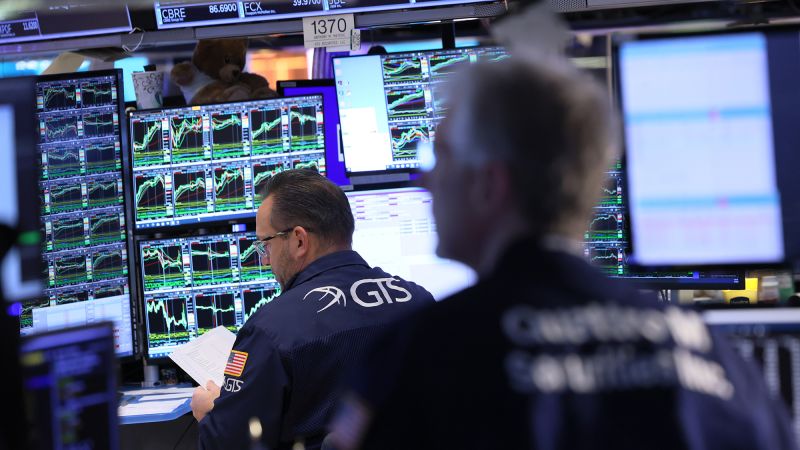The S&P 500 closed above the 5,000 level on Friday for the first time as bullish sentiment spreads across Wall Street and investors cheered fresh data showing progress on inflation.
The landmark moment comes during a period of strong economic growth, the artificial intelligence revolution, a better-than-expected earnings season, and anticipation of a pivot from the Federal Reserve to start cutting rates.
The S&P 500 briefly topped 5,000 for the first time intraday on Thursday.
It took almost 41 years for the S&P 500 to reach its first major milestone of 1,000, which it hit on February 2, 1998, according to Howard Silverblatt, senior index analyst at S&P Dow Jones Indices.
The index reached its previous major milestone of 4,000 on April 1, 2021, after the Fed slashed rates to almost zero, the government pumped stimulus funds into the economy and the Covid-19 vaccine fueled optimism of post-pandemic economic growth.
On January 19, the benchmark index hit a new record for the first time in two years, closing at and besting its previous high of 4,796.56, reached on January 3, 2022. The index went on to set six new highs in January alone.
When the S&P 500 sets a new high in January, found Sam Stovall at CFRA Research, it reaches new highs in February about 75% of the time. When new highs are set in both months, he said, the index generated an average return of about 16% and ended the year higher about 88% of the time.
The S&P 500 is up about 5.4% so far this year. The index jumped 24% in 2023, with stocks rallying powerfully at year end as optimism grew that the Fed could achieve a soft landing, or tamp down inflation without triggering an economic downturn.
The advance to new heights has been exceedingly narrow — most of the S&P 500’s gains come from the so-called “Magnificent Seven” — Nvidia, Microsoft, Meta Platforms, Amazon, Apple, Alphabet and Tesla.
Nvidia, Microsoft, Meta Platforms and Alphabet shares closed at record levels of their own several times last month.
“Optimally, when the stock market trades higher, many sectors and stocks are participating,” said Scott Wren at Wells Fargo Investment Institute in a note on Wednesday.
The returns on Magnificent Seven stocks drove about 62% of the benchmark index’s 26% total return last year, according to Silverblatt.
Read the full article here
